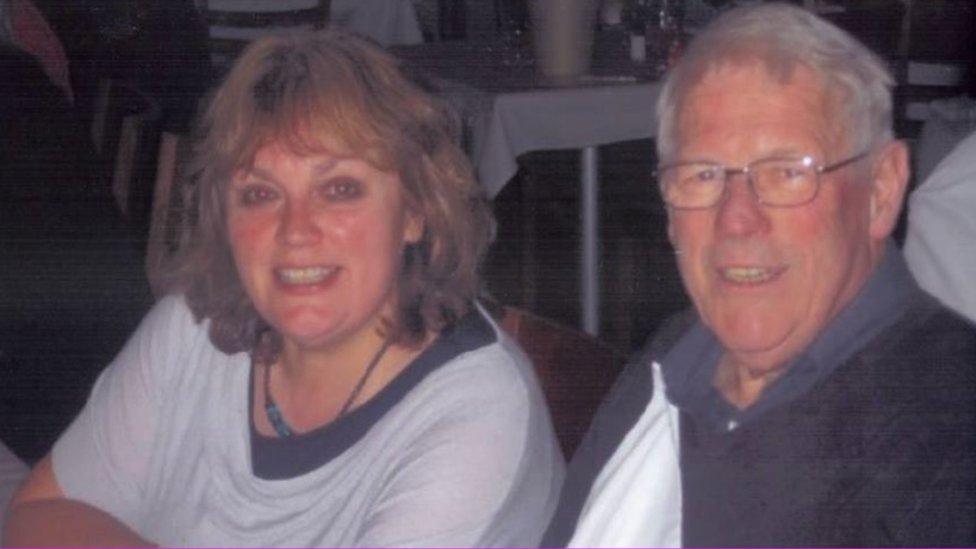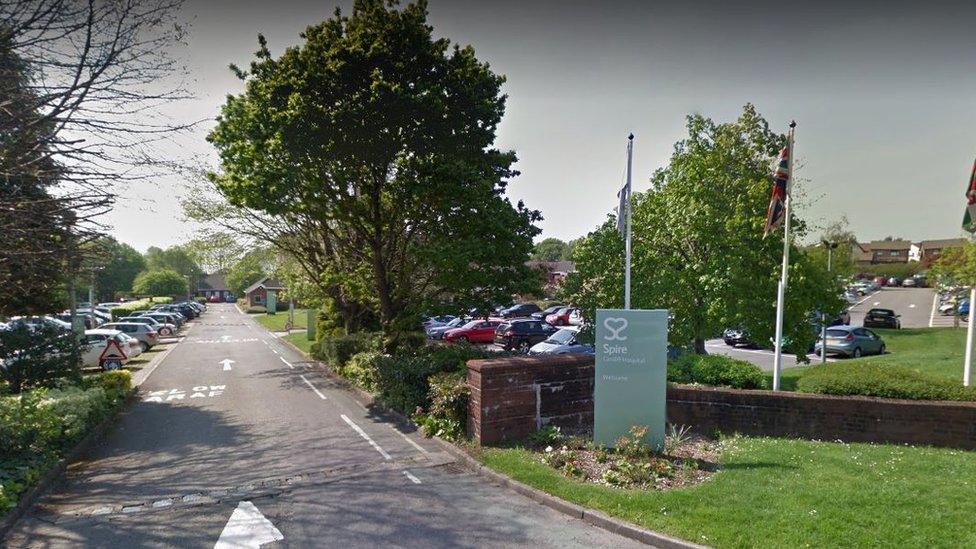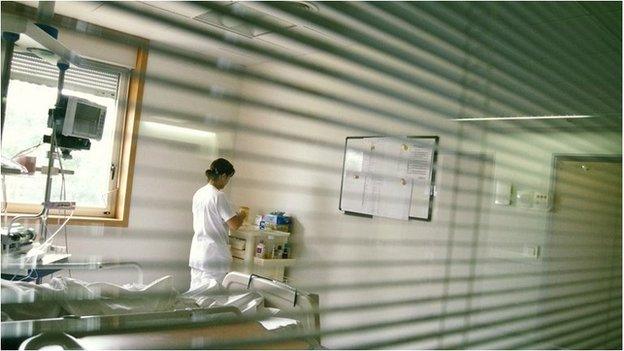Call for ombudsman to investigate private care welcomed
- Published

A widow whose complaints about her husband's care took five years to resolve has welcomed calls for an ombudsman to consider private cases.
Peter Lewis of Llanelli was discharged from Cardiff's private Spire Hospital in December 2010, but his condition deteriorated and he died in January 2011 at Prince Philip Hospital.
Private hospitals do not fall within the Public Services Ombudsman's remit.
But it is hoped a draft bill will close this perceived loophole.
Private clinics and hospitals only fall within ombudsman Nick Bennett's remit if treatment provided there has been commissioned and funded by the NHS.
But a potential law could enable him to investigate cases where a patient has received a combination of NHS and private healthcare - even where that has been paid for by the patient themselves.

Former rugby player Mr Lewis, 83, was admitted to Spire Hospital for knee replacement surgery.
He was also suffering from kidney failure and other complicating illnesses.
He was discharged shortly before Christmas, but Mr Lewis died at Prince Philip from hospital-acquired pneumonia the following month.
His widow, Ruth Lewis, felt he had been discharged from Spire too soon and not given the appropriate care and monitoring while in the hospital.
She claimed her husband was "denied a fighting chance" to recover from surgery.
Ruth Lewis welcomes the draft bill
Spire said providing high-quality patient care was its "utmost priority" and was taken "very seriously".
Mrs Lewis first asked for independent adjudication in June 2014, after feeling earlier inquiries into her complaints by Spire had not been rigorous enough.
But the investigation by Sally Williams did not begin until more than a year later, in September 2015.
In her report, submitted to Mrs Lewis and Spire in June 2016, Ms Williams upheld two of Mrs Lewis' complaints in full and one partially.
She said aspects of the care at Spire "represent a serious departure from the standard to be reasonably expected", concluding Mr Lewis should have received a blood transfusion prior to surgery and not to have done so amounted to "a significant failure in delivery of care".
It was a "failure of good practice" not to repeat certain tests before Mr Lewis' discharge from hospital.
But the report did not find negligence in the care provided.
'Frustrating'
Spire was ordered to make a "goodwill payment" of £2,250 to Mrs Lewis.
Mrs Lewis said: "It's been very frustrating and I've had to use all my emotion and resources to keep these complaints alive, but it was something I had to do because I knew things were not as they should have been.
"I would never have found peace if I hadn't reached this point."
Mrs Lewis said she was "delighted" that her case was being used to push for new powers.
Ombudsman Nick Bennett says Peter Lewis' case stayed with him
"That's the only fair way a case such as Peter's that dovetailed between national health and private care can be looked at fairly and thoroughly," she added.
Mr Bennett said Mr Lewis' case proved there was a "gap" in the system and said he was favour of the draft legislation that would give him more power to investigate such cases.
"It would be a huge shame if we don't use that legislation and put it on the statue book.
"We could do it within the space of three months, so that we can really improve public services. And make sure that my powers are there, not for me, but for the people of Wales."
If the new legislation is enacted it will be the first of its kind for the assembly in its 17-year history - a committee-sponsored bill leading to legislative change.
Sarah Lloyd-Davies, director of Spire, said: "We acknowledge that it's been a difficult five and a half years for Mrs Lewis, her family and also for the medical staff who treated Mr Lewis.
"We hope that the adjudicator's outcome will provide closure for all concerned."
She added the hospital would write to Mrs Lewis to outline how it intended to address the recommendations from the independent adjudication.
Sally Taber, director of the Independent Sector Complaints Adjudication Service, said: "ISCAS has learned from the lessons of his adjudication and will pass them onto all its member hospitals."
A Welsh Government spokesman said: "Once the draft bill is revisited by the finance committee, we look forward to discussing it further."
- Published14 August 2014
